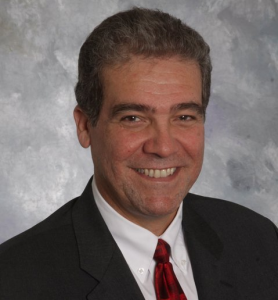Latino Politico Sees Change In Conneticut Town
 Edwin Vargas has seen Hartford, Connecticut go through some pretty astounding changes in the 40 years that he’s lived there. Now, as a candidate for mayor, he’s hoping to be able to take his personal experiences growing up in Puerto Rico, combine them with the 35 years he spent teaching social studies in Hartford and continue to promote the changes he’s seen in that town as the Latino population continues to grow.
Edwin Vargas has seen Hartford, Connecticut go through some pretty astounding changes in the 40 years that he’s lived there. Now, as a candidate for mayor, he’s hoping to be able to take his personal experiences growing up in Puerto Rico, combine them with the 35 years he spent teaching social studies in Hartford and continue to promote the changes he’s seen in that town as the Latino population continues to grow.
“I take great pride in our community because, despite all the poverty and all the discrimination, we still have a community that is still very loyal to its roots, very much a Latino community that is fierce about its traditions, customs, bilingual programs and I feel that we can do more of that and more effectively,” Vargas tells News Taco.
Vargas came to teach in Hartford in the 1970s, became part of the Puerto Rican Political Action Committee that became a regional movement to help elect Latino candidates to the local, state and other offices. He retired from teaching in 2007, has been the city’s commissioner of planning and zoning since 2005 and now in 2011 is running for mayor.
Vargas says his campaign is focused on education, children and workers. The idea is to create an “urban lab” out of the city to turn it into a model of how to transform poverty-stricken areas, Vargas says. One example he gave was to keep the schools open until 9 pm.
Currently and according to the 2010 Census figures, Hartford is 72.4% white, 13.3% African-American and 15.3% Latino. Vargas adds that the city is the richest per-capita in the state, yet a very poor city with one of the highest tax rates in the state. Most of the Latinos there are Puerto Rican, but Vargas adds that Colombians, Dominicans, Peruvians and Mexicans are increasingly making up the mix, too.
Now that Vargas has spent decades in Hartford, he can reflect on so much change that’s taken place and still be hopeful. He remembers when he first arrived how the Latino students in schools were discriminated again, “If they behaved, then they were basically allowed to languish in a corner of the room without their needs being met; if they got bored and acted out, they were being labeled with discipline problems.”
Looking towards the September election, though, Vargas says he has hope — for himself, his community and his campaign. For more information visit his Facebook page.
Follow Sara Inés Calderón on Twitter @SaraChicaD
[Photo Courtesy Facebook]
